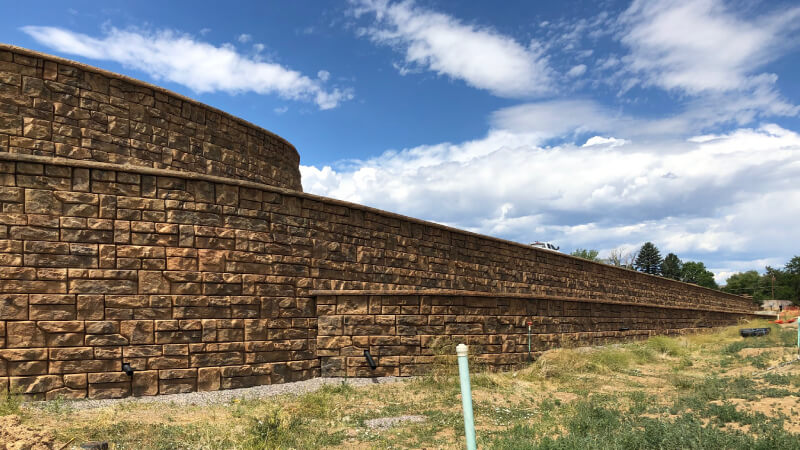Retaining walls, like plumbing or roofs, are vital technologies that easily sink into the background of our lives. They are everywhere, supporting highways, train stations, airports, bridges, and many more types of commercial structures that support our daily lives. Yet, many of us don’t think about them at all. Because of this, many people are confused or uninformed when one is necessary for a construction project.
With so many types of retaining walls out there, it can be tough to know which is best for your residential, commercial, or industrial construction project. To help catch our clients up to speed, we’ve dedicated our latest Slaton Bros. blog to listing the top factors determining which retaining wall is best.
You deserve the best retaining wall construction services in Denver and Dallas/Ft. Worth. Give Slaton Bros. a call to learn more — 303-806-8160
1) Location
Before any work is done for a retaining wall, the site has to be surveyed in detail. Construction teams will need to understand property lines in the area, where any utilities may be, understand water flow in the area, and much more. It also helps to know if anything may be above the wall, like a pool or parking lot, that could affect its performance.
2) Soil Types
The type and quality of the soil being built on play a massive role in how a particular wall will function. Some retaining walls work with nearly any soil type and consistency, while others have specific soil conditions that need to be met to be maximally effective.
As your retaining wall contractor inspects the area, they will collect information about the soil and can recommend a type of retaining wall that best fits the soil.
3) Wall Design
The next big factor that should be considered before choosing a retaining wall is the actual design of the retaining wall. There are many ways to retain and stabilize soil, so it’s important to know how exactly each wall works.
For example, gravity walls are retaining walls that use mostly sheer weight to hold back a wall. By contrast, soil nail walls use large steel rods to stabilize the soil as well as hold it back with weight and shotcrete.
There are many types of retaining walls, including segmental block, mechanically stabilized earth (MSE), and gabion walls. Your retaining wall contractor should be able to answer questions about each one until you better understand the technology and construction process.
4) Drainage
One of the number one causes of retaining wall failure is poor water drainage. As water builds up from the elements, it can build up pressure on the wall and eventually cause failure. When your retaining wall contractor inspects the site, they will also consider how water flows may affect your wall. They will then construct a drainage system to keep the retaining wall from being damaged.
5) Aesthetics
Lastly, the aesthetics of your retaining wall should be considered before making a final decision. Will this wall be in an area with a lot of traffic? Is it near an area of commerce, or will it be used in a more secluded setting? These questions can help you decide if you should care about how the wall looks.
For those who do care about looks, we offer MSE walls, modular block walls, and other types of retaining walls that can be made to match a certain look or design. On the other hand, we have options like soil nail walls or gabions that may not be as eye-catching but still perform very well. Our retaining wall experts can walk you through your options and find the best one for your situation.
Contact Slaton Bros. For Trusted Retaining Wall Solutions!
Retaining walls can seem complex when you do some research, but our team can make the process easy. To learn more about retaining walls or our construction services, contact our Dallas or Denver offices today!
